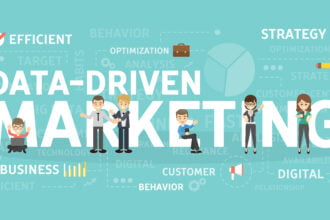“If marketing is both an art and a science, then clearly the pendulum has shifted toward the science, thanks, in part, to advances in technology and data analytics.” (CMG Partners)
“If marketing is both an art and a science, then clearly the pendulum has shifted toward the science, thanks, in part, to advances in technology and data analytics.” (CMG Partners)
A recent survey of marketing and recruitment professionals conducted by analyst firm Software Advice has produced some interesting insights into the type of marketing roles they expect will emerge in the next decade.
The survey highlights some of the key changes in roles and responsibilities taking place within the marketing function. The catalyst for these changes is partly due to a move away from the traditional, linear marketing process to a digital model that is driven by consumer engagement and interaction. According to Ashley Furness, who conducted the survey: “Recruiters are ditching mass media and direct mail acumen for candidates with SEO, analytics, mobile, social media and content savvy.”
We’ve moved beyond the social media experimentation phase and companies are now beginning to explore how they can extract greater value from the social web as a source of information and competitive insight. The next frontier lies in extracting useful insights from the vast quantities of data available online and leveraging them to increase brand awareness and market share.
The survey points to a future where the average marketing department is made up of people with a range of different skill sets, but one thing they seem to have in common is some very inventive job titles such as ‘‘Crowdsourcing specialist’, ‘Content Marketing Czar’ and ‘Vice President of Marketing Data Analytics’.
The marketers of the future will focus more on delivering targeted, tailored propositions to customers rather than a one-size-fits-all mass market strategy. By engaging with online consumers and eliciting feedback they will aim to deepen the connection between the brand and its supporters. They will also focus heavily on providing measurement and evaluating the results of marketing activities via a number of different metrics. The ability to convert data into actionable results will become increasingly important as companies strive to improve their return on investment and better align marketing activities with their core business objectives.
Main tasks and responsibilities:
- Monitor and evaluate online discussions and commentary regarding your brand or products in real time.
- Engage with consumers across multiple social media platforms.
- Analyze sentiment from comments and brand mentions across the social Web
- Monitoring online competitor presences and perceptions
- Providing management with insights and information needed to drive better decision-making
- Use feedback and data on consumer purchasing habits to drive marketing activities
For more information on how to make social media monitoring and web listening an integral part of your marketing strategy, contact us today for a demo.









